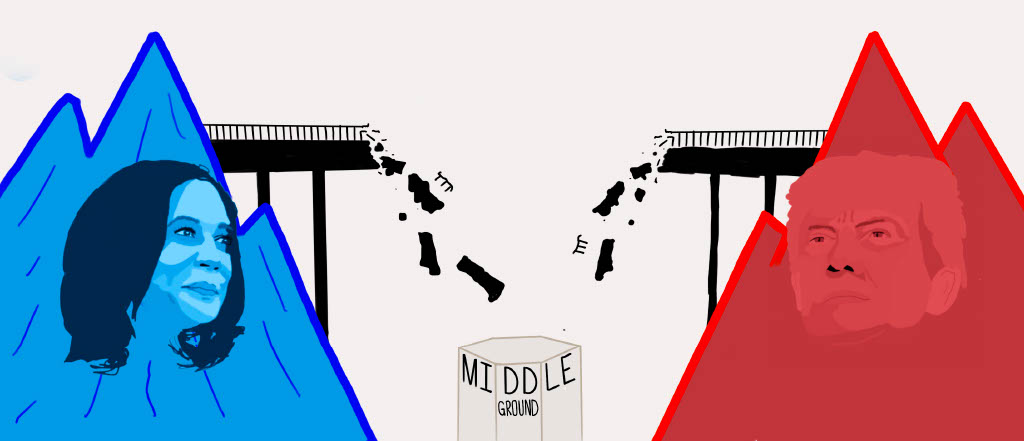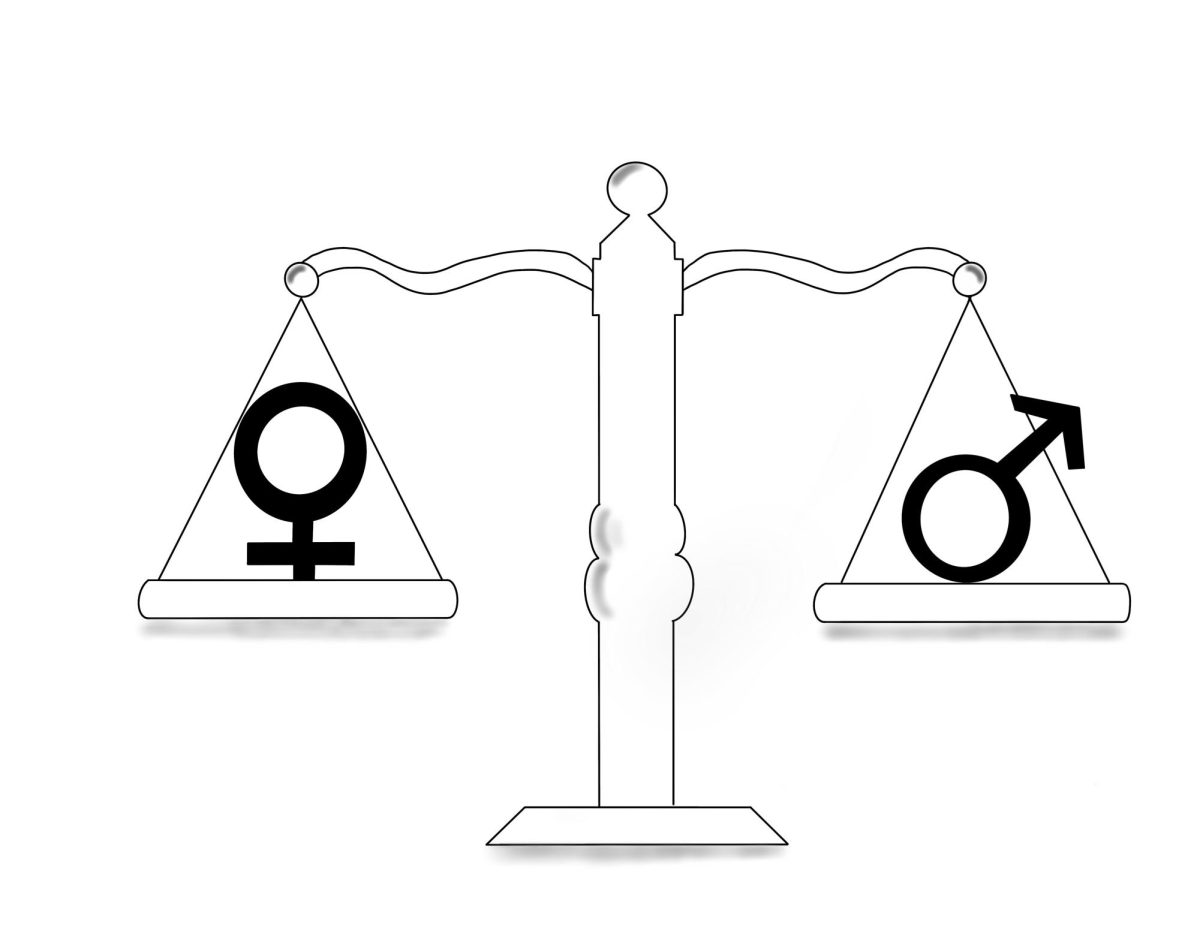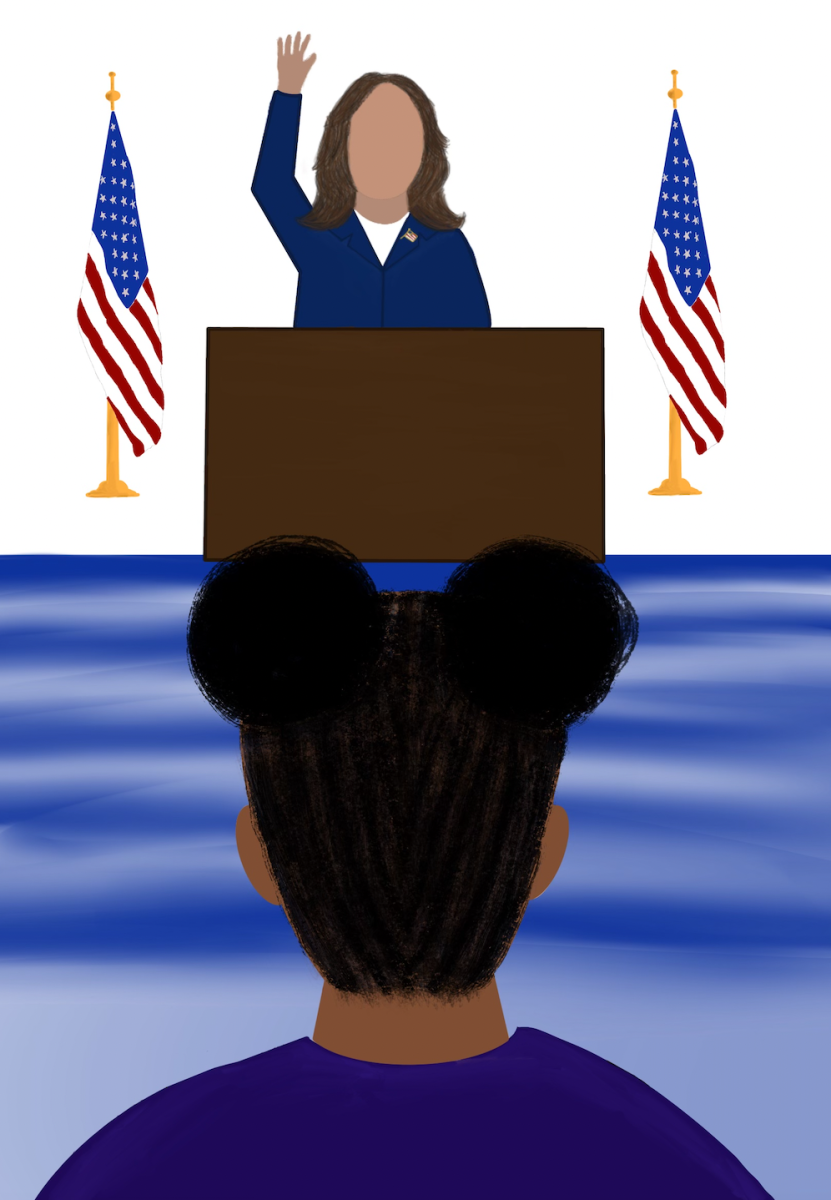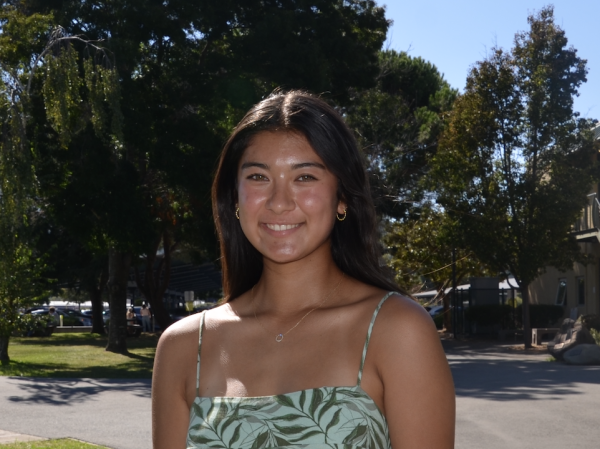Adolescents are guided and equipped from birth until they blow out their candles on their 18th birthday, finally achieving true legal independence and embarking on a new journey. Initially, thoughts of living alone, booking a hotel room or even buying a lottery ticket may come to mind. Yet, the initial excitement and freedom are swiftly transformed into a wave of responsibility. Adulthood is more than a label; it’s taking responsibility for our future through voting and active political participation, a powerful tool that empowers us to shape our society.
However, the transition into voting has its challenges. As teens approach voting age, they often lack the media literacy needed to make educated decisions. A recent survey by senior Alexa Kofman revealed a startling fact: only 50 percent of students can decipher reliable vs. unreliable sources, and 85 percent admit to not cross-checking their sources when obtaining political information, often leading to misunderstandings and misinformation. This lack of media literacy underscores the urgent and crucial need for comprehensive youth voting education.

Furthermore, our nation’s political landscape has evolved in a way that can confuse and annoy young voters. Lindsey Kornfeld, a Government teacher at Redwood, has noticed an increase in polarization between Americans surrounding political issues.
“We cannot listen to each other and talk to each other. If someone is on one side of an issue, and I’m on the other, we do not have the skills to have a conversation and compromise,” Kornfeld said.
The growing divide between the political parties has caused many Americans to feel unaligned with either party. The Center for Information & Research on Civic Learning and Engagement (CIRCLE), based at Tufts University, found that in 2018, only 56 percent of young people (ages 18-29) were affiliated with the Democratic or Republican parties. This schism frustrates many young voters, leading them to not take personal initiative to learn about politics, and thus remain uninformed.
At Redwood and across the state, high school seniors enroll in a Government class, focusing on the three branches of government while also touching on more recent endeavors. David Minhondo, who teaches Government at Redwood, believes the class is profoundly effective in preparing young voters, a testament to the power of education in shaping informed citizens.
“Every single one of us is going to be a voter. Every single one of us needs to participate in a constitutional democracy because we have the right to do so and exercise our rights and opinions. Government, especially at this school, is so well done by its teachers [and] it [provides] so much insight [to students],” Minhondo said.
Kornfeld argues that teaching students how to make decision is imperative to solving the dire issue of voting in our country. “We have a huge portion of Americans who don’t vote at all and a huge portion of Americans who are uneducated voters. If we can teach you anything at school, it’s how to have the skills to make informed choices,” Kornfeld said.
If the next generation utilizes tools to become educated regarding politics, that can kickstart a future of well-informed citizens and a more well-rounded society, instead of relying on what is easy and convenient. It is becoming increasingly important to dig deeper and ask harder questions instead of remaining content in your awareness of the world.
Redwood Alumni Hannah Reidy recalls her senior year in Government class, mentioning an impactful moment and the value she derived from the class.
“In my senior year [Government] class, we all registered to vote, which was a good way to get people involved. We also learned a lot about the voting system in that class,” Reidy said,
Despite the value the Government class has, more needs to be done to educate voters. Voter education is bigger than just learning how to cast a ballot; it’s exploring your beliefs and finding ways to fight for them. Alysha Lee, a senior at Novato High School, and Tamalpais High School alumni Ella Clark have worked as liaisons with the Student Election Ambassador Program (SEAP) to improve school voting education. SEAP, a nationwide initiative, trains and empowers high school students to become ambassadors for voting education in their schools and communities. Through SEAP, Alysha and Ella have been able to make a significant impact on their peers’ understanding of the voting process and the importance of political participation.
“It was required that [Tamalpais students] take a Government class, but it’s not the most [useful class] for [voting] education,” Clark said. “It was eye-opening to be able to join the SEAP and learn the information [about voting] and share that with my peers [at Tam].”
Educating is the first step, but as young adults graduate from college, finding time and motivation to vote and keep up with politics can be challenging. According to another analysis from CIRCLE, young adult voting participation is astonishingly low, as only 23 percent of eligible young Americans cast a ballot in the 2022 midterm elections. While this may seem sparse, CIRCLE’s analysis of youth voting trends found that the 2022 election had one of the highest youth voter turnouts in a midterm election since the voting age was lowered to 18 in 1971. This figure has risen immensely since 2014 when only 14 percent of young Americans cast a ballot. Minhondo offers his advice for staying educated and involved after graduation, which includes avoiding social media and focusing more on reliable news sources.
“Don’t rely on social media, don’t rely on algorithms because they are only going to feed you the ideological [information] that [social media companies] want you to get to keep you on their platform. Read multiple news sources daily. If you see things you believe [that] may not be true, [look] to other sources to see as many perspectives as possible,” Minhondo said.
As a country, concrete forms of voter education in schools are lacking. Instead, social media is the primary source of political information for many, leading to a digressive young generation of voters. Mandatory Government classes are valuable, but additional effort is needed to educate students. Without fully confident and educated high schoolers, young adult voters struggle to find the motivation to vote and stay educated about politics, creating a lack of representation in democracy. Creating better and easier access to voter education will ensure an educated and involved generation of young adult voters.







